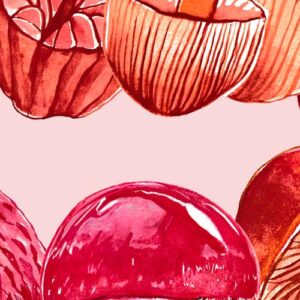Table of Contents
If you are looking for methods of relaxation and stress relief, you can start by “stopping and becoming aware”. It sounds obvious, but it is not easy.
From there, you can take deep breaths and, if possible, find, for example, relaxing music so that the harmful effects of stress – agitation, nervousness, stomach ache, etc. – stop working.
These are the quick and most generalised recommendations you will find to stop the ‘bête noire’ that is increasingly present in our lives.
There are also other techniques, including natural treatments, that can improve emotional management. We talk about all of them in the following lines.

How to reduce stress in 5 minutes?
In addition to meditation, the ABCs of stress relief are based on exercise and healthy eating. Walking, swimming, running and avoiding alcohol, fats, sugars and processed foods are proven to help. It still seems obvious, but it’s still not easy.
We know what to do but sometimes it is difficult to take the first step. That is why it is important to focus on improving one of the above mentioned aspects.
Sometimes it also helps to start a diet, change a routine or start a treatment or protocol. You know how a small gesture can change the world? The progressive sum of small decisions can bring about the big change we long for. Remember: if we want different things to happen, we must do things differently.

Tackling one of the most prevalent health problems
According to the CIPD data, stress is an extremely common health problem among workers. Other equally alarming data show that, in general, we experience stress at least once a week.
What is emotional stress?
When stress is punctual (known as eustress), it can have positive aspects related to emotion and attention. For example, the excitement caused by surprises, the arrival of a new family member…
In fact, stress understood as a stimulus, has made our ancestors react to alerts and dangers, allowing evolution to give us back the image we have of ourselves in the 21st century: evolved human beings capable of reaching other planets and developing artificial intelligence.
Stress, eustress and distress
However, stress sustained over time has more negative connotations than positive ones. In this case, we are talking about stress, that stress that paralyses us and is detrimental to our health.
Although nowadays, it tends to be considered a mental issue, from its scientific definition, stress has an important biological aspect.
General Adjustment Syndrome (GAS)
Thanks to the Viennese physician Hans Selye, we know that stress combines a series of symptoms. The father of stress observed that his patients manifested exhaustion, sleep disturbances, a depressed immune system and disturbances in the digestive system, a common picture that made them more vulnerable.
This is how stress came to be properly called stress, although at the time it was known as the Sickness Sickness Syndrome or General Adjustment Syndrome (GAS).

What causes chronic stress?
When we have to face an exceptional situation, our body releases hormones that allow us to adapt our response to this demand.
This overexertion due to prolonged exposure to stressors has physical consequences and often affects what could be defined as our weak points.
In other words, we speak of physical concomitants of stress. Although each individual has his or her own, there are general tendencies such as:
- Skin disorders: seborrhoeic dermatitis, flaking and skin rashes are reported by people under stress.
- Insomnia: inability to fall asleep due to agitation and nervousness is common in people suffering from emotional stress.
- Eating disorders: “emotional hunger” is different from “real hunger” because it does not serve a physiological need – who hasn’t needed a sweet treat to appease an overwhelming situation?
- Defensive posture: physiotherapists have a lot to say in this area, as they frequently treat muscle contractions resulting from what is already known as defensive posture due to stress.
Stress, Anxiety
Prolonged exposure to a stressful situation that overwhelms us has been linked to various pathologies such as anxiety and depression, among others.
In order to cope with stressful situations, the body releases more adrenaline and noradrenaline, and this has physical consequences.
Recent studies have linked the physical wear and tear of chronic stress to pathologies such as lupus, sleep and eating disorders and even premature birth.
How to lower cortisol
Cortisol is a cyclic hormone with more diurnal than nocturnal activity. It is activated by threat, alertness, fear and uncertainty, and this activation follows that of adrenaline and noradrenaline.
This hormone is triggered by real and imagined threats alike. Some experts speak of cortisol intoxication to refer to the constant worry that comes from most everyday situations: what if something happens to my daughter, what if I don’t make ends meet, what if I run into my boss, what if I can’t make ends meet…..
What some call cortisol poisoning is nothing more than constant fear and stress, and can lead to inflammation and pain. Now more than ever, we know what that is. After the pandemic, first, and with the uncertainty of the current economic and social context, it is easy to understand these feelings better.
Natural relaxation and stress relief
Sport, meditation and a healthy and balanced diet – preferably anti-inflammatory (zero alcohol, for example) – is the recipe for success, so that the chemical reactions in our body tend to minimise the secretion of adrenaline, noradrelanine and cortisol and thus contribute to relaxation and stress relief.
Stress relief techniques
There are even techniques that point to cold as a stress-relieving measure. Other measures include reducing exposure to blue light from screens (it can affect the cyclical behaviour of cortisol) and, more understandably for everyone, turning off the phone, really disconnecting from whatsapp notifications and other chats.
Adaptogens and anti-stress nutrients
Supplements can certainly be considered, especially natural adaptogens for stress relief aimed at improving insomnia, hormone regulation and emotional management.
There are also key nutrients and bioactive substances for emotional and nerve management:
- B, D and C vitamins
- Fatty acids of the omega 3 series
- Triterpenoid compounds
- Antioxidants
- GABA
- Hericenones
- Magnesium
These substances are involved in stress management and stress relief either by reducing the physiological impact of stress or by promoting an adaptive response by the body.
What is the best natural antidepressant?
Perhaps this response has no single answer, and the key to success is the right combination of the best natural antidepressants.
As mentioned above, natural adaptogens help manage stress because they modulate our adaptive response, making their effect on the body less harmful, and counteracting immunological, hormonal and neurological problems resulting from stress and fatigue. Here is a list of the most popular and well-studied
- Reishi: the “mushroom of eternal youth” is one of nature’s most potent adaptogens.
- Cordyceps: or the life energy fungus.
- Lion’s Mane: connects the gut-brain axis.
There are different options on the market when it comes to buying medicinal mushrooms, from powder to extract, the most concentrated form to obtain their properties. At Hifas da Terra we have been researching the composition of mushrooms for 20 years. Although we are a biotech, like pharmaceutical companies, we carry out in vitro and in vivo studies to test the quality of our products.
Our aim is to offer products derived from medicinal mushrooms of quality, 100% pure and with impeccable traceability, which is why we follow pharmaceutical production standards and are endorsed by seals such as European organic production.
As a result of our research work, we have obtained the functional ingredients Herimax® and Herizumib®; Cordyzumib® and Ganozumib®, obtained from our own strains of Lion’s Mane, Cordyceps and Reishi respectively, selected on the basis of their biological activity. These are the ingredients that we use for our formulas and that we test in our clinical trials.
How to relax and de-stress
The maxim You are what you eat also applies to relaxation and stress relief. Thus, it is advisable to prioritise a diet with natural antioxidants such as green tea and reduce caffeine intake. You can also add the above-mentioned nutrients and prioritise:
- Gluten-free cereals
- Fresh seasonal vegetables
- Fresh seasonal fruits
- Berries and seeds
- Medicinal mushrooms (in extract or powder form for maximum bioactive substances)
- Green tea
- Natural prebiotics and probiotics
Organs affected by stress
As we have explained, health in general is compromised after prolonged exposure to stressors. In this regard, some organs are particularly affected by stress:
- Heart: certain levels of stress-derived hormones are linked to an increased risk of hypertension and heart failure.
- Immune system organs: a depressed immune system is one of the physiological characteristics defined in Selye’s Adaptive Response Syndrome and therefore increased vulnerability to, for example, viruses and bacteria.
- Digestive system: studies show that stress is implicated in the development of irritable bowel syndrome, which is characterised by constipation and/or diarrhoea, abdominal pain and bloating.
Symptoms of stress
Despite the proven physiological consequences of stress, there is still a tendency to regard it as a lesser evil. In part, this may be because its symptoms are common in isolation:
- Lack of rest or insomnia
- Digestive discomfort
- Exhaustion, tiredness
- Depressed immune system
However, their combination is a clear indicator of the presence of chronic stress which, as we have seen, can have implications for general well-being. It is best to consult a health professional to assess the situation and provide guidance on the most recommended treatment or protocol for relaxation and stress relief.
Summary: how to improve stress management and calm nerves
As we have seen, alertness has been fundamental to the survival of our species but the context has changed. In the last century, prolonged alertness, fear and uncertainty were defined as stress and in this case, the adaptive response resulted in new problems that compromise health status.
For example, sport, meditation, a balanced diet and substances such as natural adaptogens promote a controlled response to stressors. Specifically, we are talking about natural substances that provide GABA, hericenones, natural antioxidants, triterpenoid compounds and vitamins C, D and B that help balance the immune and endocrine systems to improve emotional management.
If you are interested in health and wellness issues and the use of safe natural supplements, sign up for our newsletter!
WE RECOMMEND

Linoleic Acid: Why This Essential Omega-6 Is Vital for Your Health
☑️ Linoleic acid is a polyunsaturated omega-6 fatty acid essential for human health, as the body cannot synthesise it and must obtain it through diet. This fatty acid plays several critical roles, including supporting skin integrity, contributing to the formation of cell membranes, and serving as a precursor to important bioactive compounds. Its anti-inflammatory properties and role in maintaining the skin barrier make it particularly beneficial for skin health. Understanding the importance of linoleic acid and ensuring adequate intake can significantly impact overall well-being.

Are all red mushrooms toxic?
Red mushrooms are often perceived as toxic, but sometimes other properties are also recognised. Let’s discover them together in this post.
